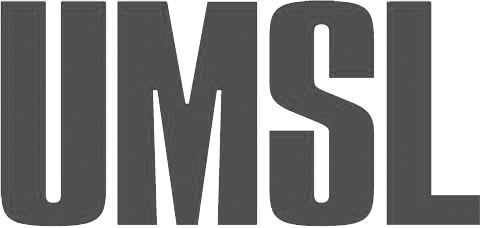By Wally Siewert, Ph.D., Public Ethicist
Next Tuesday, August 7, St. Louis County residents will go to the polls to decide between two leading candidates in the Democratic primary for St. Louis County Executive: incumbent candidate Steve Stenger and his chief challenger, businessman Mark Mantovani. Voters were recently denied an opportunity to listen to these candidates exchange an open dialogue on a range of important issues facing our region.
As a public ethicist, a civic engagement advocate, and a U.S. citizen, I find this deeply problematic, and symptomatic of a wider trend of non-engagement, especially among incumbent candidates.
For the past year, I have been a part of the Social Policy & Electoral Accountability Collaborative (SPEAC), a group facilitated by the Community Builders Network and comprised of leading St. Louis area organizations striving to hold elected officials accountable to the communities they represent, or are seeking to represent, both prior to an election and afterward. In February 2017, SPEAC hosted one of the largest mayoral forums in the City of St. Louis, held at the Sheldon in partnership with St. Louis Public Radio, the Nine Network, and The St. Louis American. Over 700 people gathered to hear mayoral candidates discuss their priorities on live television before the March primary, a race that—as will likely be the case with next week’s primary in the County—effectively determined the outcome of the subsequent general election.
SPEAC has spent the past ten months planning a similar forum for the County Executive race in St. Louis County, originally set to be held on July 25 at the Touhill Performing Arts Center on the University of Missouri-St. Louis campus. As we did last year, our group was working with journalists at St. Louis Public Radio to craft questions that would have explored where candidates stand on priorities at the heart of the Ferguson Commission Report under the Youth at the Center, Opportunity to Thrive, and Justice for All issue clusters.
Mark Mantovani agreed to take part in SPEAC’s forum. However, despite repeated, multi-pronged outreach attempts over time, County Executive Steve Stenger’s campaign failed to confirm his participation. As a result SPEAC was forced to cancel the event.
As someone who worked hard in partnership with a coalition of incredible St. Louisans who are passionate about building a stronger, more equitable, and more just region for all, I was very disappointed in this result.
As Forward Through Ferguson’s David Dwight noted in SPEAC’s press release about the forum cancellation, “there are few things more core to the health of our local democracy than the right of residents to interact with those who seek to represent our community in public office.” Indeed, this is the very glue that holds a democracy together: a genuine belief that our elected representatives and public institutions will take our viewpoints and our needs into account in a real, substantive way when they craft policy and make decisions. Without that foundation of accountability, transparency, and trust, democracy can’t exist.
To read SPEAC’s full announcement about the forum cancellation, click here.
***
Dr. Wally Siewert has over a decade of experience with civic and political engagement, from the grassroots and applied level to academic analysis and theory. From 2011-2017, Dr. Siewert was the Director of the Center for Ethics in Public Life (CEPL) at the University of Missouri-St. Louis. During that time CEPL established itself as a statewide hub for public ethics information, conferences, workshops, research, best practices, legislative tracking, community collaboration and more.
Prior to arriving in St. Louis in 2011, Wally earned his Ph.D. in political philosophy and ethics from the University of California Santa Barbara. He also holds an M.A. in philosophy and a B.A. in philosophy and German from Western Michigan University. Prior to his post-graduate work, Dr. Siewert worked as a political organizer and lobbyist for a network of state-level grassroots consumer justice organizations, including two years as the Campaign Director for the Coalition for Consumer Justice of Rhode Island. He also spent four years as a small business owner and manager.
Dr. Siewert’s most deeply held political beliefs are not about policy, but about political process—about what it takes to create cooperation among co-citizens while simultaneously respecting every individual’s right to pursue her own personal conception of the good. He is an avid wood-worker and animal lover who enjoys nothing more than a good game of chess with a purring cat on his lap and a dog on his feet.
***
Articles in “From the Field” represent the opinions of the author only and do not represent the views of the Community Builders Network of Metro St. Louis or the University of Missouri-St. Louis.
We invite readers to contribute to the civic conversation about community development in St. Louis by writing an op-ed for the Community Builders Exchange. Op-eds should be short (400-700 words) and provocative. If you have an idea for an op-ed, contact Todd Swanstrom at swanstromt@umsl.edu.







